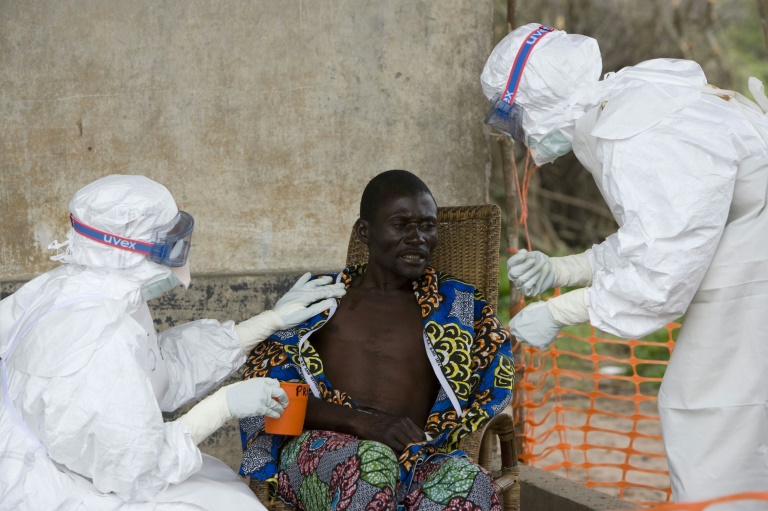An Ebola outbreak in a remote region in DR Congo’s far north poses a logistical challenge for doctors and aid workers although the sheer remoteness could help limit its spread.
The latest outbreak of the highly contagious disease, the eighth to date in the sprawling country five times the size of France, has been reported in Bas-Uele province: an equatorial forest zone near the Central African Republic.
Nine suspected infections have been reported there, three of which have proved fatal.
The World Health Organization said the zone at Likati, some 1,300 kilometres (930 miles) from the capital Kinshasa, was very difficult to access but stressed it was crucial to pinpoint who had had contact with those affected in order to nip the latest outbreak in the bud.
This is the first Ebola outbreak on the continent since a crisis that began at the end of 2013 in west Africa that killed 11,300 people.
Liberia was the last of those vast African states to be declared clear of the disease in January last year.
Regis Billaudel, the head of mission of the medical NGO Alima said Kisangani, the main city in the northeast, was accessible by air, and then one could travel by road to Buta, the capital of Bas-Uele.
But covering the 150 kilometres separating Buta and Likati was another matter, combining travel by boat along the Itimbiri river and then using motorbikes to reach Likati.
“Four-wheel drives won’t go through,” the narrow forest roads, said Eugene Kabambi, the spokesman for the WHO’s Congo mission.
“Taking heavy equipment in all these zones is a real challenge,” said Billaudel. “There it’s a world of motorcycles, cycles and stretchers.”
An Alima team was already on its way to Likata, he said, adding: “We are studying various possibilities.
– ‘Many logistical constraints’ –
Ebola is a viral illness whose initial symptoms may include a sudden fever, aching muscles and a sore throat, with subsequent symptoms including diarrhoea and vomiting and, on occasion, internal and external bleeding.
Humans can catch the illness from close contact with infected animals.
Inter-human transmission can then occur through direct contact with infected blood or bodily fluids.
Mourners can also catch it if they have direct contact with the bodies of victims at funerals.
The Belgian branch of the medical charity MSF said it was sending teams, equipment and medicines to the area with the help of the Congolese government but conceded that “there are many logistical constraints.”
The last instance of Ebola in Congo in 2014 — in a remote northwestern region — was contained in less than three months and killed 49 people, according to official figures.
“There are many similarities with the situation in 2014,” said Kabambi, adding that the sparse population in the affected zone was an advantage.
The remoteness helps contain the spread but is also a “challenge for those fighting the disease,” he said.
Source: AFP


